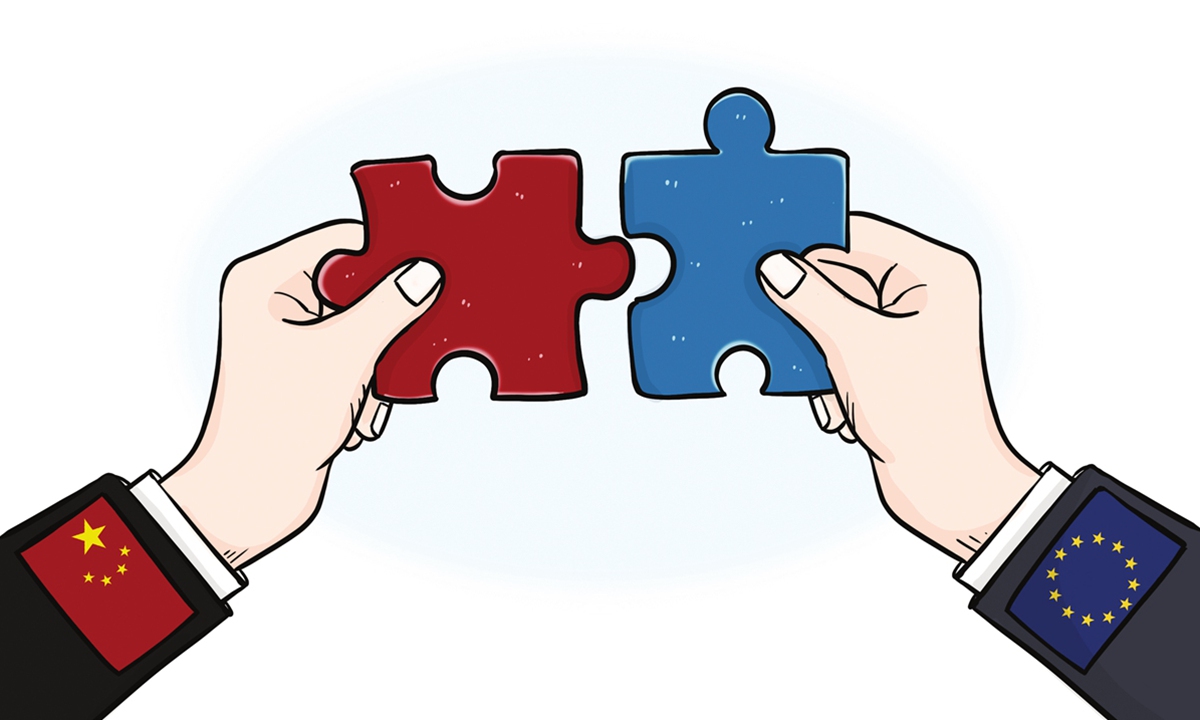
China EU relations
According to Newsweek, the Norwegian government stated in its latest annual report on security challenges that Chinese intelligence services operate "all over Europe" and that Chinese intelligence networks pose a security threat to Europe. The Norwegian intelligence agency has fabricated baseless accusations against China without providing any factual evidence, maliciously slandering and smearing China. This claim is just a new version of the "China threat" theory and an old trick to discredit China.
Multiple annual threat assessment reports released by the Norwegian Police Security Service, the Norwegian Intelligence Service, and the Norwegian National Security Authority are filled with clichéd rhetoric of the "China threat" theory, fabricating imaginary enemies without factual basis. These reports essentially reflect a strong Cold War consciousness in the West. The Chinese Embassy in Norway expressed strong dissatisfaction and firm opposition on Tuesday against these reports, stating, "Based on Cold War mentality and ideological prejudices, spreading political lies to sow division and incite confrontation is the greatest threat to international cooperation and people-to-people exchanges."
Some anti-China forces in the West occasionally create new anti-China political rhetoric, intending to portray China as a disruptor of the international order in terms of ideology.
Gao Jian, an expert on European studies at Shanghai International Studies University, told the Global Times that instead of considering how to improve themselves through fair and reasonable competition and develop their own economies, some Western countries use ideological means and methods to divert domestic political contradictions and amplify and widen the ideological divide in society.
Recently, some European countries have been promoting the China "spy" theory without a factual basis, forming a pathological "spy concern."
Faced with China's increasing presence in Europe, some Western politicians equate influence with espionage activities, politicizing and ideologizing all activities, including economic trade. Some media even vigorously promote the idea that China poses the greatest threat. Whether it is the "China threat" theory or the China "spy" theory, it is just a continuous change of rhetoric to hype up China's issues, attempting to divert attention from Europe's own crises.
As Europeans themselves have said, the West is now facing a "more dangerous security situation." It is absurd and ridiculous to blame China for the dangers the West faces and portray China as a challenger and disruptor of the world order.
Shen Yi, director of the Research Institution for Global Cyberspace Governance at Fudan University, said that this statement is very typical of the logic of "the West being sick but making others take medicine." When facing problems, the West should first look for reasons within themselves. Attempting to shift contradictions and transfer crises by hyping up the "China threat" cannot solve the West's own problems.
The Russia-Ukraine conflict has brought profound crises to the entire European political and economic landscape, but Europe is at a loss in resolving these crises, according to Gao. Currently, European society faces severe challenges in people's livelihoods. Immigration policies have led to great changes in the population structure of Europe. At the same time, a series of crises caused by the failure of European countries' political and diplomatic policies have not been resolved, resulting in an overall social crisis. Therefore, some anti-China politicians defame, exaggerate, or distort China's influence, hoping to portray China as a significant threat to Europe in order to divert attention.
However, fundamentally, understanding China as a so-called long-term threat to Europe does not conform to the objective reality or the inherent trends and needs of China-Europe relations.
For Europe, the economic interdependence and interaction between China and Europe are inherent needs of the European economy. There is no direct geopolitical conflict between China and Europe. Therefore, depicting China as a long-term strategic threat seriously violates basic objective reality. Although China-Europe relations face a series of challenges against the backdrop of profound changes in the international landscape and international system, it should be noted that China-Europe relations still have many positive factors, especially in economic and trade cooperation, and the development trend is still positive. Europe should establish a correct understanding of China and work together to promote a better world.
